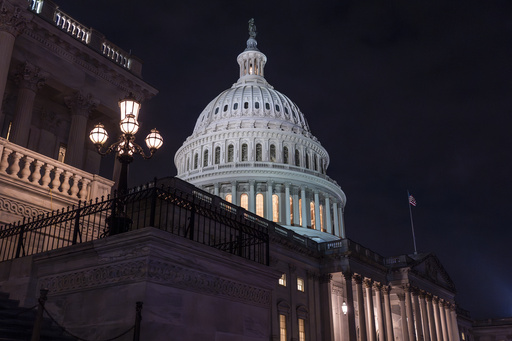In a significant legislative move, the Senate approved a bill early Saturday designed to enhance Social Security payments for millions of individuals. This development marks a pivotal achievement for former public sector employees and aligns with a long-standing objective in Congress as the year draws to a close.
The newly passed bipartisan legislation is now set to be forwarded to President Joe Biden. It aims to revoke longstanding reductions in Social Security benefits that affect nearly three million beneficiaries, including retirees from federal, state, and local government jobs, as well as essential service professions like teaching, firefighting, and policing. Advocates for the measure argue that the Social Security Fairness Act addresses a longstanding inequity, although it is anticipated to exert additional pressure on the Social Security Trust Funds.
This legislative effort has been in the works for decades, but it gained momentum in the final weeks of the congressional session. The bill secured overwhelming support, with all Senate Democrats and 27 Republicans voting in favor, resulting in a final vote tally of 76 to 20.
Senate Majority Leader Chuck Schumer, a Democrat from New York, expressed his satisfaction, stating, “Millions of retired teachers, firefighters, letter carriers, and local workers have waited decades for this moment. No longer will public retirees see their hard-earned Social Security benefits taken from them.”
The legislation specifically repeals two notable provisions: the Windfall Elimination Provision and the Government Pension Offset. These provisions previously restricted benefits for individuals receiving retirement payments from public pension programs linked to state or local governments.
Senator Sherrod Brown, an Ohio Democrat who championed the bill over the years and is set to leave Congress after losing his reelection bid, emphasized the significance of the changes. “Social Security is a cornerstone of our middle class. It represents the retirement security that Americans contribute to throughout their lives,” he stated. Brown criticized the existing restrictions, asserting that they “make no sense” and highlighted the public service provided by these workers.
Individuals currently facing reductions in their benefits due to the existing exceptions should soon experience an increase in their monthly Social Security payments. However, this enhancement is projected to contribute an estimated $195 billion to federal deficits over the next decade, according to projections from the Congressional Budget Office.
Furthermore, the Social Security Trust Funds are already expected to be unable to sustain full payouts starting in 2035. The new changes may accelerate the program’s insolvency timeline by approximately six months. For a typical dual-income couple poised to retire in 2033, this could translate to an additional lifetime reduction of around $25,000 in their benefits, as noted by the nonpartisan Committee for a Responsible Federal Budget.
While many opponents acknowledged the unfairness of current reductions for public service retirees, they expressed concerns about endorsing the bill given the current challenges facing the entire Social Security system. “We caved to the pressure of the moment instead of doing this on a sustainable basis,” remarked Senator Thom Tillis, a Republican from North Carolina.
The changes enacted by the legislation are expected to place additional demands on the Social Security Administration, which is already facing staffing shortages, the likes of which have not been witnessed in 50 years. Currently staffed by approximately 56,400 employees, the agency has not had this low a workforce count since 1972. Notably, the stopgap government funding measure that was also passed this past Saturday did not allocate any additional funds to the agency, which is operating under a hiring freeze.
Supporters from the Republican side of the aisle maintain that this legislation presents a unique opportunity to rectify what they describe as an inequitable aspect of federal law that negatively impacts public service retirees. “They have earned these benefits. This is an unfair, inequitable penalty,” stated Senator Susan Collins, a Republican from Maine.
Republican proponents also indicated their intent to pursue broader reforms to the Social Security system in the future. Despite this, President-elect Donald Trump has stated his commitment to not altering benefits, even as his administration considers substantial budget cuts elsewhere. Nonetheless, Senate Republicans are brainstorming proposals aimed at improving the program’s financial health, which may ultimately lead to a reduction in benefits. A proposal championed by Senator Rand Paul sought to gradually raise the retirement age to 70, although it garnered only three votes in support when put to the test.
“We have a significant responsibility to address this correctly and to have the fortitude to reform Social Security in the years ahead,” warned Tillis. “We will regret the day we fail to accomplish this.”


